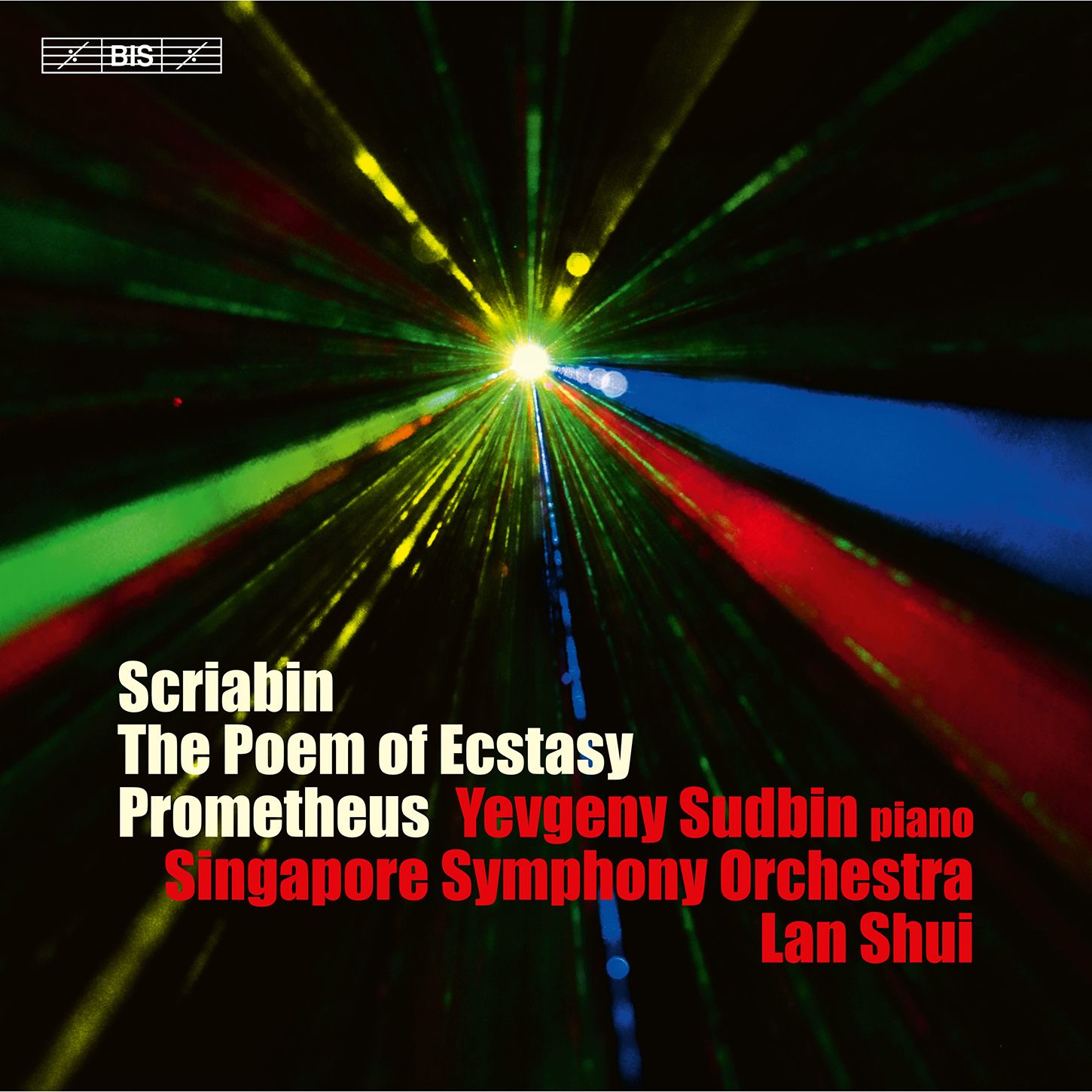Repost: Scriabin's Ecstasy and Fire

This is a great programme of music by one of the most elusive composers to have ever lived. Alexander Scriabun (1872-1915) was a trail-blazer in his music, his heady chromaticism reaching out in the later piano sonsatas towards a very personal brand of post-tonalism. He is famous too for his mysticism, as a follower of Helena Petrovna Blavatsky and her belief system of Theosophy.
Here we have works written 1907 (The Poem of Ecstasy, Piano Sonata. No. 5) and 1909-10 (Prometheus - the Poem of Fire), wprks of the composer's later period
. First up is The Poem of Ecstasy, The ecstasy in question is of the spritual kind, as a 300-line (!) poem that precedes it tells us. As the composer put it:
An ocean of cosmic love encloses the world and in the intoxicated waves of this ocean of bliss is felt the approach of the Final Act – the act of union between the Male- Creator and the Woman-World.
The Singapore Symphony Orchestra is in tremendous form - the solo trumpet in particular, who ahs a motif that keeps on cutting through the orchestral textures like a hot knife through butter:
It is worthwhile comparing this with a classic performance to show just how well Shui and the Simngapore players match up, but also to remind us of the performance tradition in this piece. Follow this link, then, is the great Yevgeny Mravinsky with the Leningrad Philarmonic Orchestra.
The Fifth Piano Sonata was composed in a span of only six days, immediately after The Poem of Ecstasy.Yevgeny Sudbin gives a phenomenal performance, full of power and with a fulll understanding of Scriabin's harmonic world. He has this to say about the Sonata:
From this moment there are no more compulsory modulations; cadences vanish and the elements that constitute the sonata from be- come more diffuse ... in the Fifth Sonata the same chord can sound icy, cosmic and even frightening, or warm, hopeful and nostalgic
The sense of surging striving that characterised The Poem of Ecstasy is present in the Fifth Piano Sonata. This performance was actally previously released by BIS on an earlier disc (it was recorded in 2005), but it makes perfect sense nestling between the two big pieces with orchestra:
The Fifth Sonata is cast in one movement lasting just over 11 minutes in this performance. The atmospher eis copressed, as if worlds are possible within that time-scale; there is also coruscating virtuosity, with some gestures (in Sudbin's performance) even seemingly pointing towards those used in electronic music. Sudbin's performance is vital, white-hot and unmissable.
Finally, Prometheus, The Poem of Fire (1909-10). BIS' excellent booklet notes sum up the premise well:
In Greek mythology, the titan Prometheus stole fire from the sparks of Apollo’s chariot wheels, and in defiance of the gods of Olympus gave it to mortal men. For this he was punished by the gods, chained to a rock and his entrails repeatedly torn out by a vulture for all eternity. Scriabin further identified this rebel-hero figure with the fallen angel Lucifer, and with two other great sacrificial victims and bringers of enlightenment to mankind: Jesus Christ and himself
In his piece, Scriabin tracks the formation of the World, from formless chaos, through the appearance of mankind, fertilized by the divine spark, towards spiritual liberation and ultimate transcendence. The orchestra is huge, the solo piano part magnificent, culminating in a wordless chorus (here both the Singapore Symphony Chorus and the Singapore Symphony Youth Choir). Sudbin seems on top form here, even more exciting than in the Sonata:
While you cannot see this on disc, Scriabin asked for a colour organ to drench the orchestra in partticular colours at particular times - the composer was synaesthetic, which meant in his case he 'felt' key areas as a particular colour - a vibrational equivalence. Here is Marta Argerich with Claudio Abbado in a performance that does indeed include those colours:
BIS' orchestral ecordings on this disc are absolutely demonstration standard - lush yet every detail comes through. The Singapore Symphony Orchestra shows itself to be absolutely fo international standard, with Lan Shui (Principal Conductor of the Singapore Symphony 1997-2019, now their Conductor Laureate) in total control throughout.
https://open.spotify.com/album/7e3kpxlS1qrDJOWQvSUkA6?si=2OsRx82GRuadB3B8ymTFyQ
